Are you gearing up for a project handover and wondering how to ensure a smooth transition? A well-crafted letter can serve as the perfect guide to outline the essential steps and responsibilities involved in this process. By providing clear project handover guidelines, you can foster effective communication and set the stage for future success. Dive into our article to discover valuable tips and a handy template that will make your project handover seamless!

Introduction and Project Overview
The project handover guidelines ensure a seamless transition of responsibilities and knowledge from one team to another, particularly essential in complex endeavors like software development or infrastructure projects. A comprehensive overview of the project should include its scope, objectives, and key deliverables, documenting critical milestones such as the project kickoff on January 15, 2023, and the final review meeting scheduled for December 1, 2023. Key stakeholders, including the project manager, development team, and client representatives, should be clearly identified, along with their roles and responsibilities. Project documentation, consisting of design specifications, user manuals, and testing results, needs careful organization to facilitate accessibility. Additionally, any ongoing maintenance or support requirements must be outlined, highlighting critical dates for follow-up and assessments, ensuring the incoming team is well-prepared to maintain project quality and continuity.
Handover Documentation and Deliverables
Handover documentation is crucial in ensuring a smooth transition of responsibilities and knowledge transfer between project teams. Key documents include the Project Charter, a comprehensive outline detailing project objectives and scope, and the Project Plan, which includes timelines, resources, and milestones. Additionally, a Risk Management Plan should address potential hazards identified during project execution and mitigation strategies. Deliverables must be itemized, including specifications, design documents, testing results, and user manuals, ensuring all stakeholders have a clear understanding of what has been produced. Essential tools for the handover may involve training sessions, where team members can familiarize themselves with operational procedures and software systems used during the project. A final review meeting should also be conducted, confirming that all elements align with the agreed timelines and quality standards, setting a foundation for ongoing operations.
Roles and Responsibilities
In a project handover, clearly defined roles and responsibilities are crucial for a smooth transition. The Project Manager, overseeing the entire process, coordinates with team members and stakeholders, ensuring that all deliverables are documented and accessible. The Technical Lead, responsible for the technical specifications, provides detailed insights into systems, technologies, and methodologies utilized throughout the project's lifecycle. The Quality Assurance Team verifies that all project outcomes meet established standards and compliance requirements before final handover. Additionally, the Documentation Specialist compiles comprehensive project documentation, including user manuals and installation guides, to facilitate understanding for future teams. Lastly, stakeholders must be engaged to understand expectations and project outcomes, ensuring alignment and support during the transition period. Clear communication among these roles not only fosters accountability but also mitigates potential disruptions during the handover phase.
Key Contacts and Communication Channels
Effective communication channels play a vital role in project handovers, ensuring seamless transitions. Key contacts, such as project managers, team leads, and stakeholders, should be clearly defined. For instance, the project manager, often located at the headquarters in New York, should be reachable via email (contact@company.com) and phone (123-456-7890). Additionally, team leads for various departments, including marketing, development, and customer support, should have designated communication methods such as Slack channels or weekly meetings, fostering collaborative efforts. Clear documentation methods, like shared folders on cloud services such as Google Drive or Dropbox, ensure easy access to essential files and updates. Establishing these protocols enhances clarity and accountability, minimizing potential misunderstandings throughout the project lifecycle.
Transition Timeline and Milestones
A well-defined project handover process involves a comprehensive transition timeline and key milestones that ensure a smooth transfer of responsibilities. The transition timeline outlines critical phases such as preparation, execution, and completion. For instance, during the preparation phase, key activities may include stakeholder identification and documentation review happening over a two-week period. The execution phase could span one month where team members participate in knowledge transfer sessions and updates on current project statuses. Finally, the completion phase, lasting one week, focuses on final assessments and obtaining stakeholder sign-off for the project handover. Each milestone, such as finalizing the project documentation or conducting a complete system walkthrough, serves as a checkpoint to confirm all necessary actions have been successfully implemented, ensuring no detail is overlooked as the project transitions to the new team or individual.

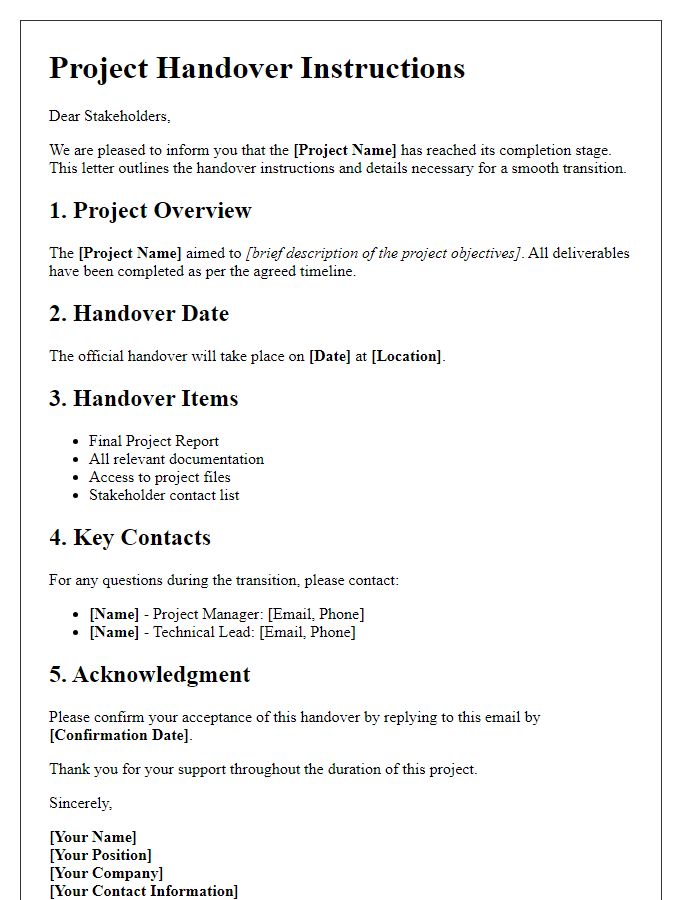
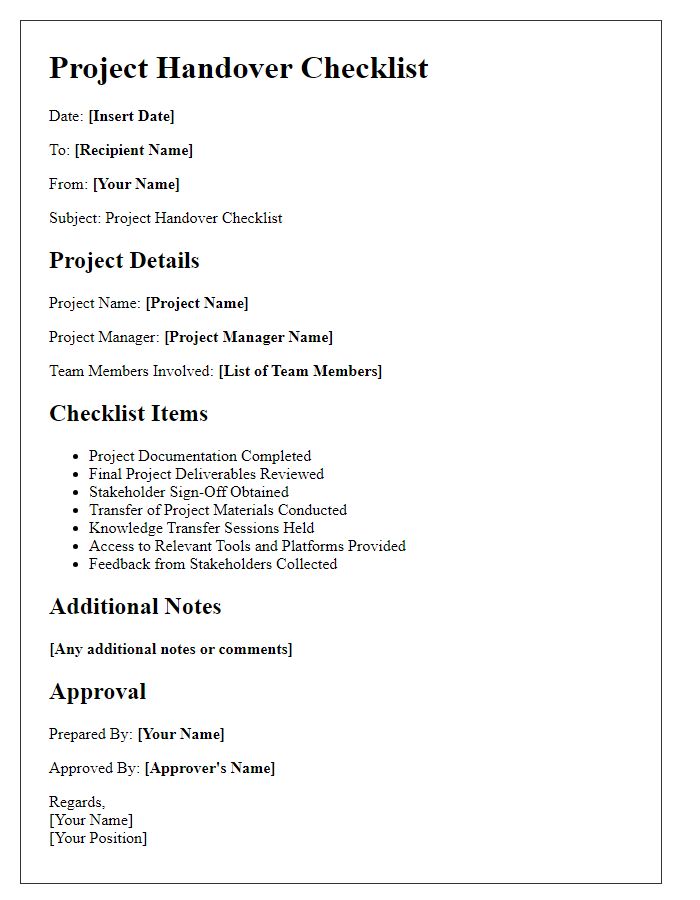
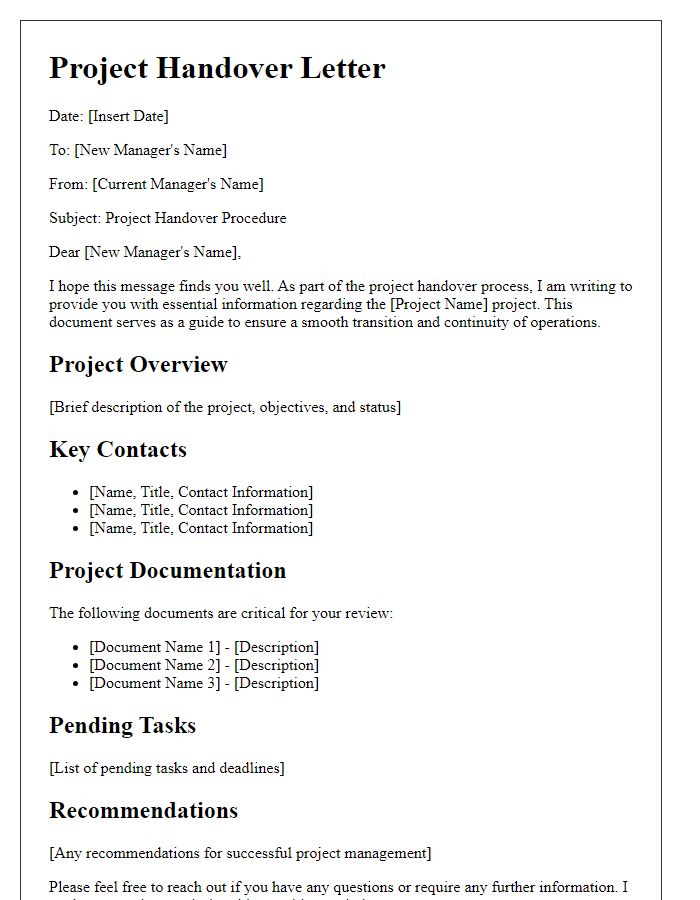
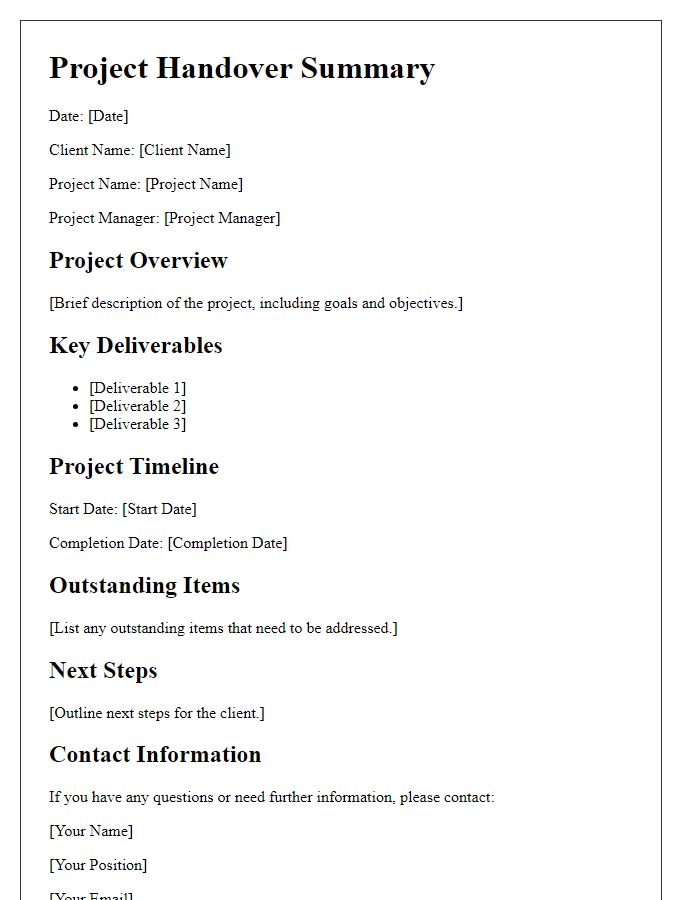
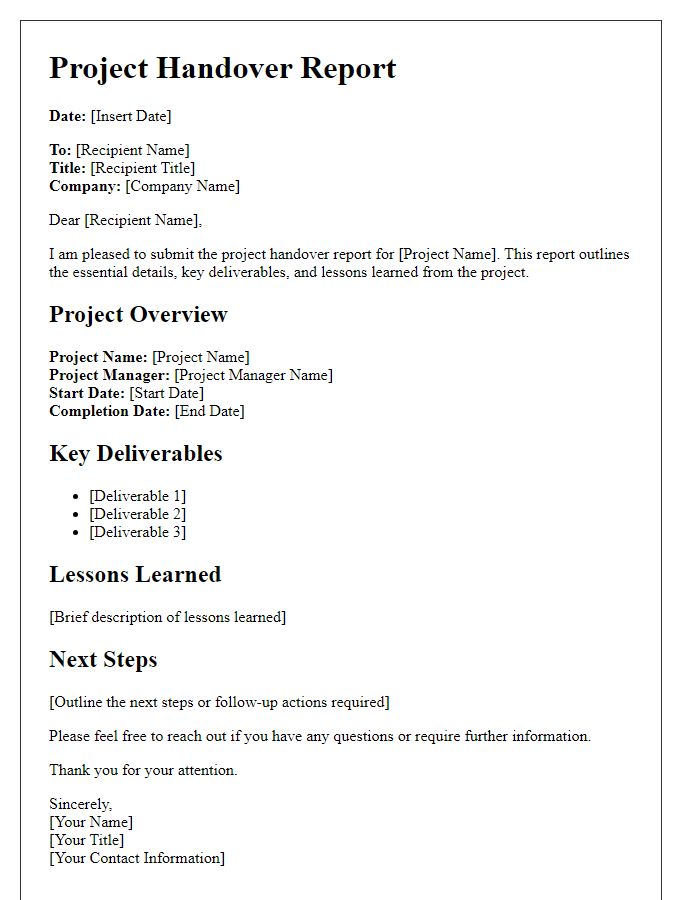
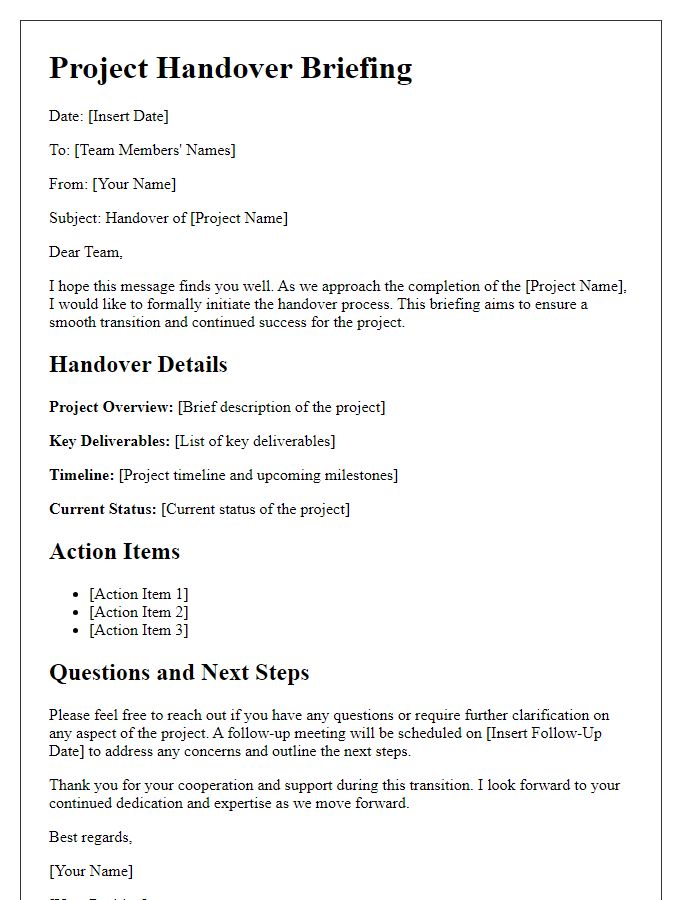
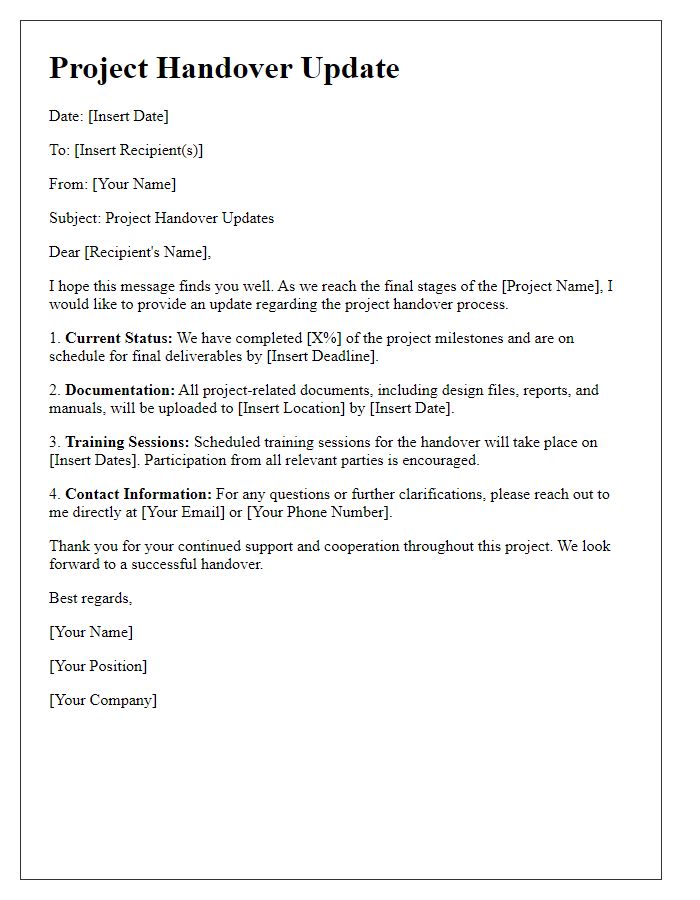
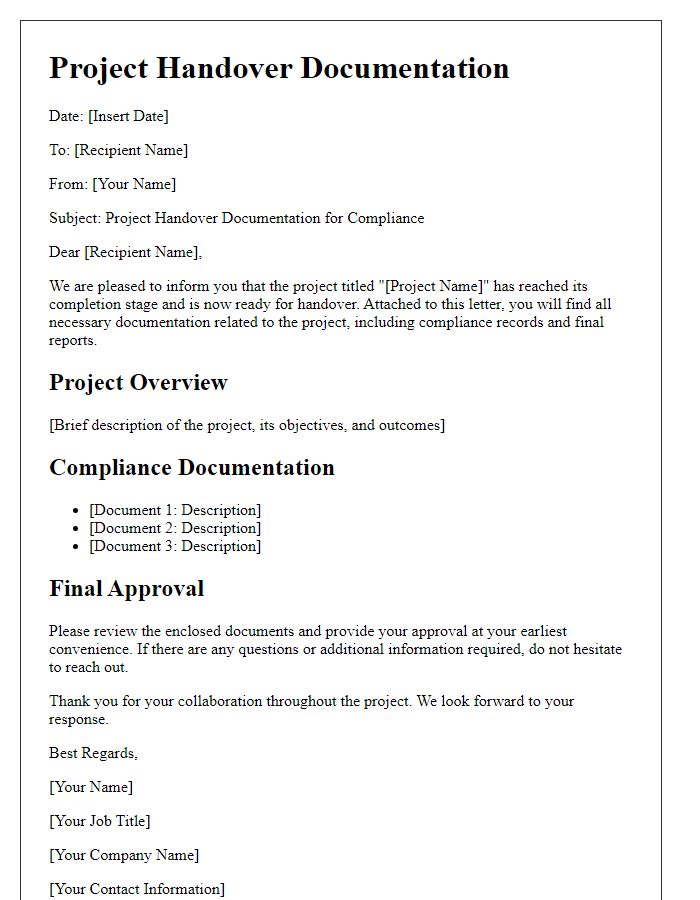
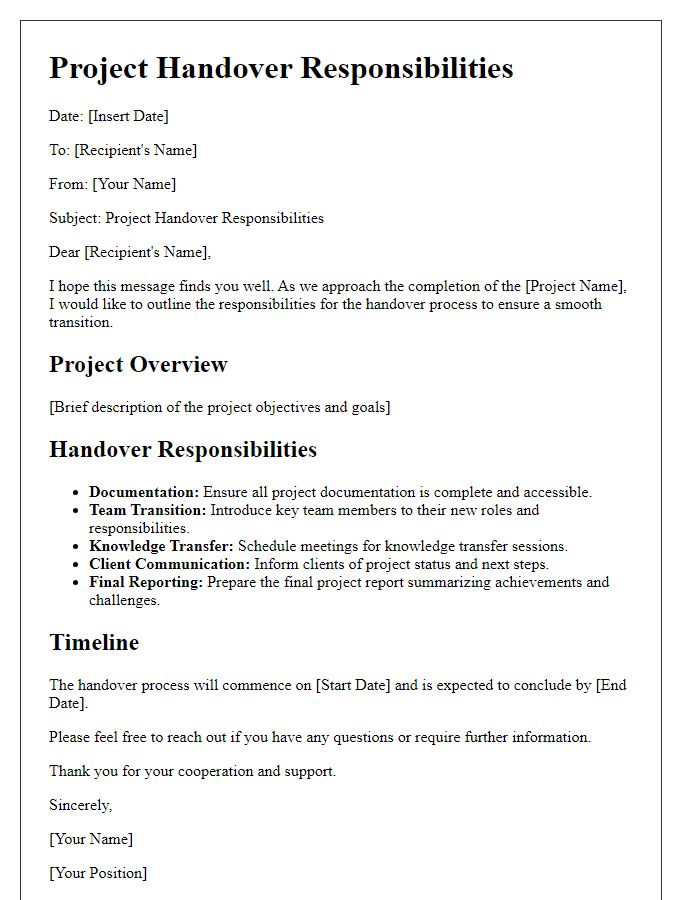
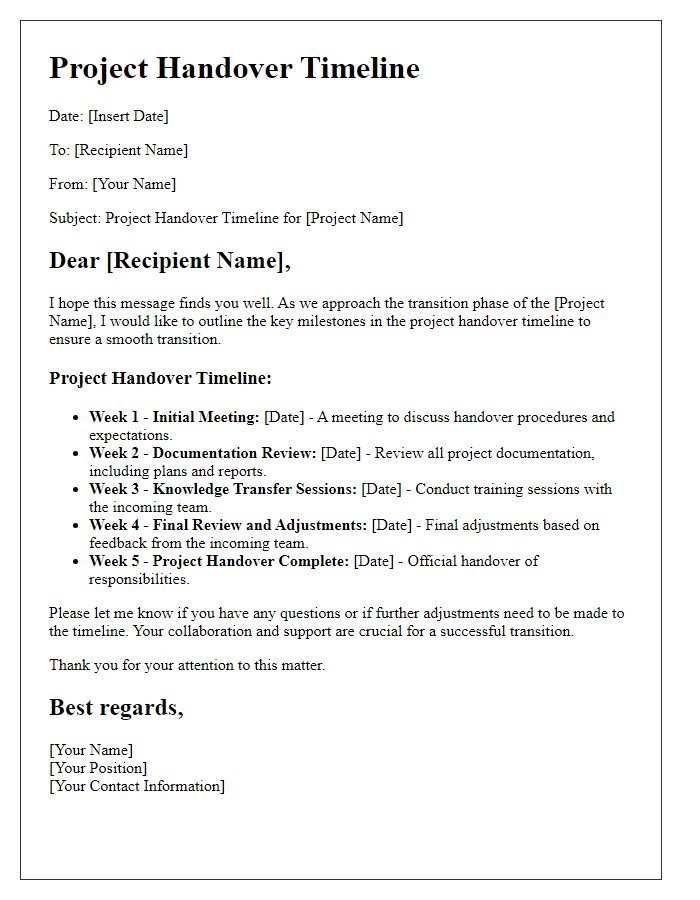


Comments